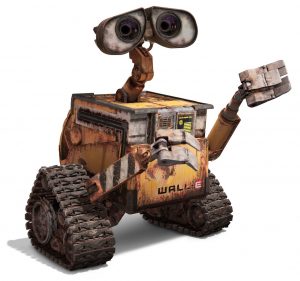In this course, we have primarily focused on the medical ethics for physician-patient relationship. I wonder if the principles that we discussed in the class can be applied to being other than humans and people. It would be a very interesting thought experiment to see if artificially intelligent/conscious robots can be given the same moral status as humans which would then open a plethora of dilemmas and questions.
The last few decades have seen a phenomenal rise in computer science and technology. We are accelerating at a pace that we could not have predicted just a hundred years ago. I think we are at a point where the ethical implications for a lot of our scientific achievements are not well understood. But, that has not stopped us from progressing ahead. One field of interest is the invention of artificial intelligent machines. While we already have machines that are intelligent such as smartphones and computers, but they are nowhere near close to the human intelligence. However, the machines are getting smarter and smarter with each iteration and there could be appoint where a computer can rival the intelligence of humans. This event is described as technological singularity. It could potentially trigger runaway technological growth resulting in drastic changes to our way of life.
At this point it is very important to distinguish between artificially intelligent machine and an artificially conscious machine. The former suggests a type of machine that can do a task better and faster than what humans can do. The later suggests a type of machine that has a conscious perception of it doing work.
According to Michael Graziano, a highly reputed neuroscientist from Princeton University, consciousness is generated by the interoperation of various parts of the bran, called the neural correlates of consciousness (NCC). Some computer scientists believe that it is possible to create machines that can emulate this NCC interoperation.
Hypothesizing that such artificial conscious (AC) machine is indeed created, should we then give the machine a moral status or not. I try to battle this using Beauchamp and Childress’s theories of moral status.
- A theory based on human properties: This theory wouldn’t give the machine a moral status. But, it is important to note that this theory also excludes the animals. We now know that many species of primates and cetaceans have significant self-awareness and not giving them moral status would be considered inhumane. AC machine would have the same issue as the animals. Therefore, we need to look at other theories to get a better picture.
- A theory based on cognitive properties: Beauchamp and Childress list 6 conditions under this theory that are necessary for a being to be considered worthy of moral status. I invite you to read those conditions and thing about how AC machine would fall under this theory. I think that a true AC would satisfy all the conditions.
- A theory based on moral agency: According to this theory, a being derives moral status from its capacity to act as a moral agent. A machine can be programmed to follow certain laws that are essential to being considered human. The machine can also consciously choose to follow this rules and tell if something is right from wrong.
- A theory based on sentience: Sentience is defined as a consciousness in the form of a feeling, this is the capacity to feel pain or pleasure. Admittedly, capacity to feel is limited to biological life and while an AC machine can emulate these feelings, it is impossible to know if it “feels” rather than it “thinks that it feels”.
- A theory based on relationships: This theory states that relationship between beings should be for moral status, rather than being directly. This would then follow that dynamic relationships between AC machines and people would be given a moral status.
Let me know what you guys think about this!
